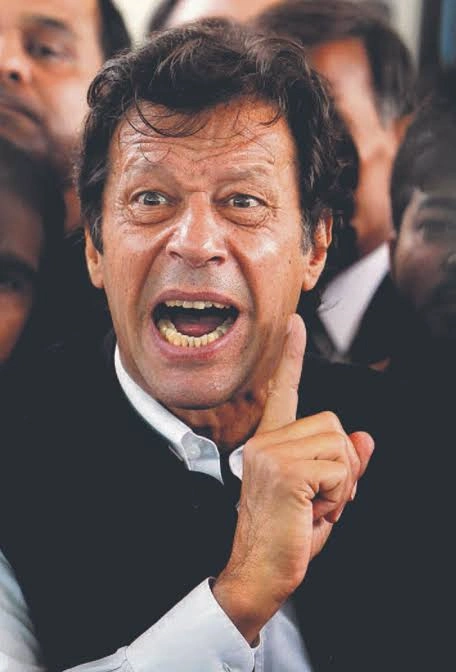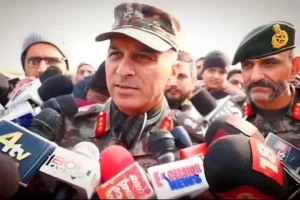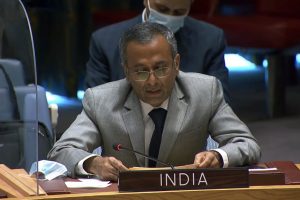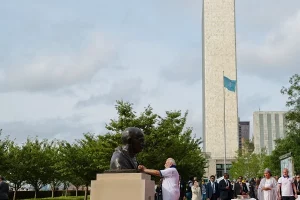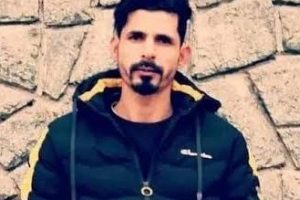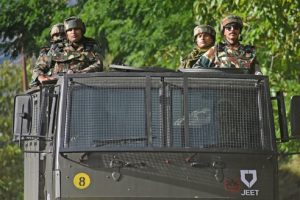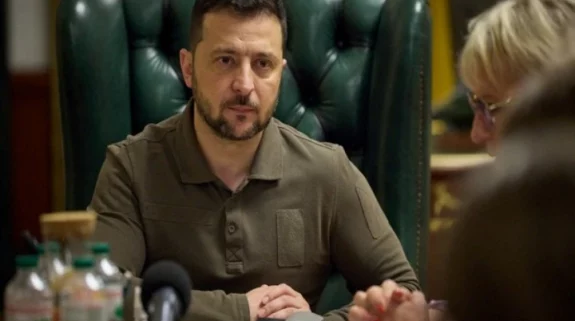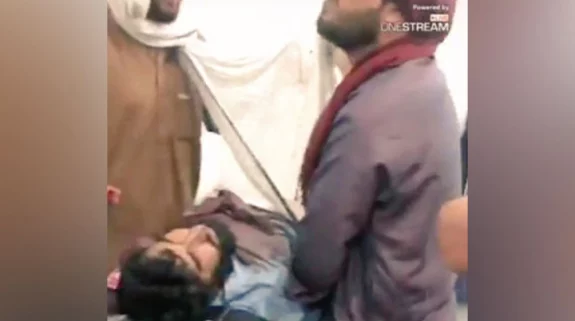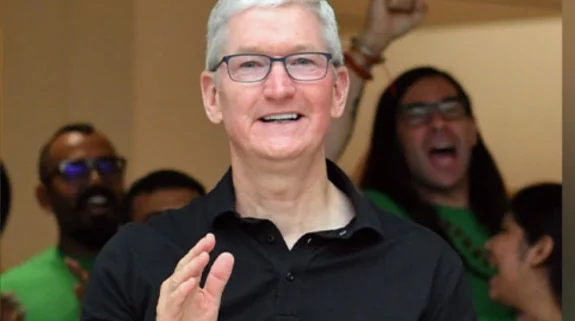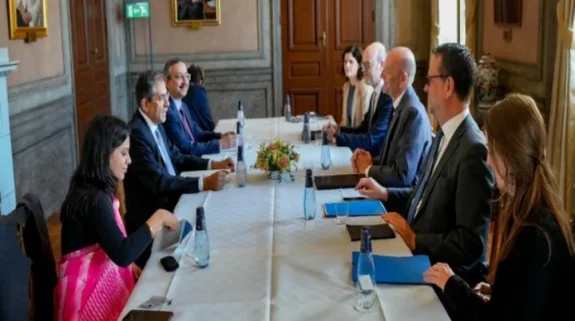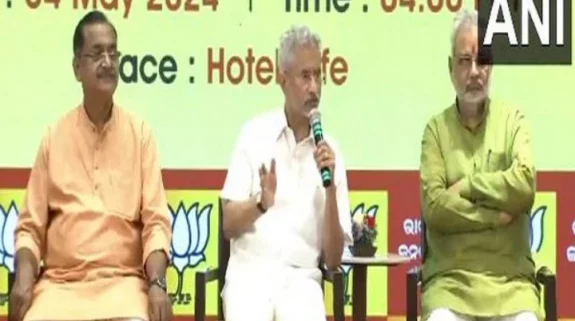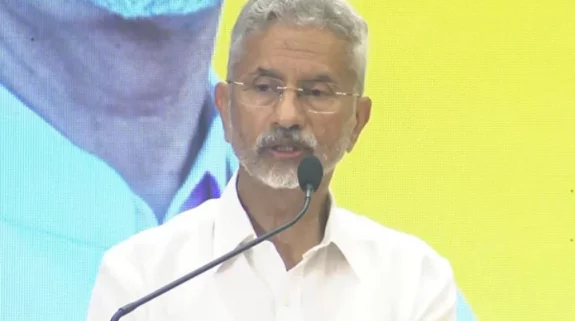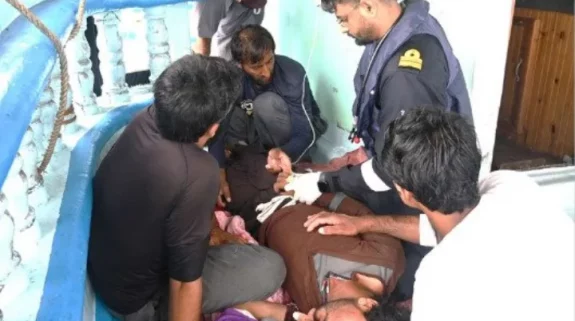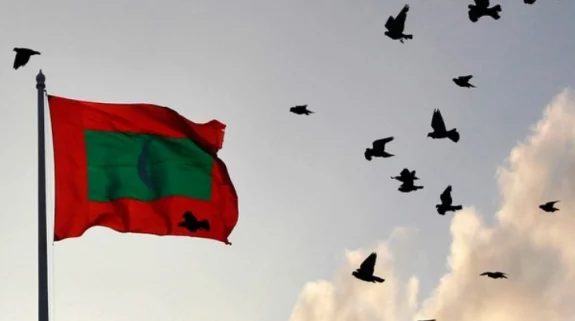Imran Khan’s last address as Prime Minister to his nation on Friday comes, inter alia, as an unprecedented eye-opener for a section of the Kashmiris who have been yelling “Kashmir banega Pakistan” and “Pakistan se rishta kya, la ilaha illallah” since 1989.
The first one is Pakistan’s official slogan which, written on a big board, greeted the Kashmiri passengers of the cross-LoC bus immediately after treading the Aman Setu foot bridge in Uri, till 2019 when Mufti Sayeed’s dream service ended in a fiasco. Such boards still stand at many places in Pakistan-occupied Kashmir. The slogan means: “Kashmir will one day become an integral part of Pakistan”.
The second one, promoted by the pro-Pakistan groups like Jamaat-e-Islami (JeI) and its guerrilla arm, Hizbul Mujahideen, ran parallel to the separatists’ slogan of “Ham kya chahte: Azadi”. Political commentators insist that ‘azadi’ was nothing but a camouflage in Operation Tupac. They call it part-1 of Gen Zia’s cryogenic engine for Kashmir’s annexation to Pakistan. It stresses on Kashmir’s assimilation in Pakistan on the basis of the commonality of religion—Islam.
A section of the population with militants at their back has espoused the cause of Kashmir’s annexation to Pakistan. Since 1990, it has claimed the entire ground in the valley but whenever its strength was tested on the electoral linear, it looked like a dribble. Only once, when it was virtually part of a faction of the Congress party in the hugely rigged Assembly elections of 1972, JeI got a share of 5 seats in the House of 76. In 1977, it got only one seat, in Sopore where Syed Ali Shah Geelani won with a paltry margin of 36 votes. In 1983, it got zero. It contested but never won a Lok Sabha seat.
In 1987, JeI was part of the Muslim United Front (MUF). Two of the four MUF winners—SAS Geelani and Abdul Razaq Mir Buchru—belonged to JeI. Nevertheless, in the post-1998 elections, the pro-Pakistan electorate helped Mufti Sayeed’s Peoples Democratic Party (PDP) win some Lok Sabha and Assembly segments, mostly in the JeI bastion of Pulwama-Shopian in South Kashmir.
Leaders and activists like Geelani and Asiya Andrabi kept the Pakistan aspiration afloat by organising rallies, encouraging playing of the Pakistan anthem at cricket matches and hoisting the Pakistan flags whenever they got an opportunity or a convenient partner in the government. The governments remained either mute spectators or brazenly permissive to the Pakistan victory or India defeat celebrations after cricket matches between the two countries. The last of the series was witnessed at a hostel of the Government Medical College in Srinagar in October 2021.
It is not for the first time that a Prime Minister has described Pakistan “worse than a Banana Republic”. All the victims of the undemocratic regime changes have observed the same and levelled similar allegations of foul play against the power grabbers in Pakistan in the past. Yes, this is for the first time that a sitting Prime Minister has called a spade a spade and also opened the eyes of the Kashmiris yearning for “better democracy and freedom” and dying for the valley's relationship to that country.
In his historic address, Imran Khan bowled googlies on his detractors, calling them traitors and sell-outs at the hands of America. He described Pakistan as a completely failed democracy and sham sovereignty, claiming that his country was being run by foreign countries holding the ultimate key to power. He alleged that the opposition’s no-confidence motion against him had been “sponsored and funded” by the United States of America for his audacity to visit Russia at the beginning of the war in Ukraine.
According to Khan, the US diplomat Donald Lu had warned Pakistan’s ambassador in Washington DC that Islamabad would have to bear consequences if the non-confidence motion failed. Later, Khan’s cabinet Minister Shah Mehmood Qureshi revealed in the Parliament that the USA’s National Security Advisor had communicated a similar threat to his counterpart in Islamabad.
For the first time a sitting Prime Minister has admitted that Pakistan’s rulers had got 80,000 countrymen killed in the American drone attacks which also resulted in devastation in two provinces and migration of 5 million citizens. According to him, Pakistan’s past rulers, now allegedly trying to take over with America’s support, had collaborated with the foreign country against huge amounts of money. Even the media, he said, had been purchased by the foreign country.
The most surprising part of Imran Khan’s extempore speech was his unqualified praise for India and its democracy. He appreciated India’s democratic traditions and the entire nation being always united against any attempt of foreign pressure or intervention.
“I feel pained to say that India, which has given me love and respect as a cricketer and which I know better than others, which achieved freedom when we did, is a strong independent democracy and sovereignty…India (unlike Pakistan) is an extremely self-respecting nation (khuddar qaum). Nobody can ever dare to treat it like we are treated. No super power can dare to even think of dictating terms to India. Look how India is importing oil from Russia in spite of the world sanctions against that country. They say we buy it because it is in the interest of our people", Khan said.
Imran Khan said that even the European Union ambassadors had issued a statement in Pakistan “in total violation of the diplomatic protocol”, demanding his country to condemn Russia through a statement. “Can they dare to dictate it to India? They can’t because India (unlike Pakistan) is an independent sovereign country”. He pointed out that both the countries had achieved freedom together in 1947. While one grew as a strong sovereignty and democracy, another ended up a failed State.
Also Read:
At the stroke of midnight, Pak PM Imran Khan loses trust vote in a high voltage drama






